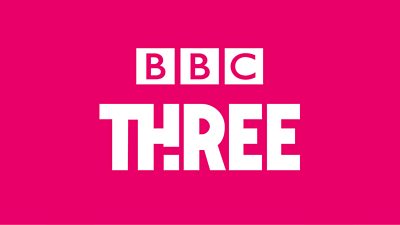BBC Three to return as a broadcast channel in January 2022
The BBC today confirmed the return of BBC Three to TV screens. The move is part of our drive to deliver more value to audiences.

“The BBC needs to back success and make sure its programmes reach as many young people as possible, wherever they live in the UK. So regardless of the debates about the past, we want to give BBC Three its own broadcast channel again. It has exciting, groundbreaking content that deserves the widest possible audience, and using BBC iPlayer alongside a broadcast channel will deliver the most value.” — Charlotte Moore, Chief Content Officer
The BBC’s Annual Plan 2020/21 published last year, outlined research which confirmed there remains an available audience on broadcast television for BBC Three.
BBC Three has been a real hit machine for the BBC, delivering some of our biggest performing shows, from Killing Eve to Fleabag and Normal People. We believe in backing success and, having committed to double the investment on BBC Three commissions over the next two years, we want to showcase that content to a wider audience. Using both a broadcast channel and BBC iPlayer in tandem, will help to grow our offer and deliver more value to younger audiences.
While the BBC does well with large parts of the younger audience – on average, young adults in the UK spend more media time per week (seven and a half hours) with BBC’s services than any other brand; our research identified a significant group of younger viewers who maintain a strong linear TV habit but are currently light users of the BBC. We want to change that.
Charlotte Moore, Chief Content Officer says: “BBC Three is a BBC success story, backing creativity, new talent and brave ideas has resulted in hit after hit, from Fleabag and Man Like Mobeen, Ru Paul’s Drag Race UK and Jesy Nelson’s Odd One Out, to Normal People and This Country.
“The BBC needs to back success and make sure its programmes reach as many young people as possible wherever they live in the UK. So regardless of the debates about the past, we want to give BBC Three its own broadcast channel again. It has exciting, groundbreaking content that deserves the widest possible audience and using BBC iPlayer alongside a broadcast channel will deliver the most value.”
The returning BBC Three will deliver greater public value by further increasing the diversity and creativity of our output and build on the strengths of BBC Three’s online performance. That’s why we will aim for at least two-thirds of the expanded BBC Three’s programme spend to be outside of London and across the UK.
BBC Three has a strong heritage in breaking and supporting new British talent and this will create a bigger platform to launch and celebrate them. It will provide us with a new shop window to reach a younger audience currently underserved by the BBC, bringing them the best BBC young programming and talent across all genres.
We propose to launch in January 2022 and adapt CBBC’s operating hours to make the most value out of the increased content we commission . Ofcom has charged the BBC with doing more to reach young people. The channel will be targeted at audiences aged 16-34. The new channel will broadcast from 7pm to 4am each day, the same as the hours of the channel when it closed in 2016. As a result CBBC’s broadcast hours will revert to closing at 7pm – as was the case before 2016. As a result, we intend to expand the remit of BBC Three with a pre-watershed content offer suitable for 13+. Importantly, we will not take any further traditional TV channel capacity for our services, but reallocate distribution capacity from our existing services within the current space.
Additional context from asi
Neil Thurman of LMU Munich forecast the return of BBC Three in November last year during the 2020 asi Virtual Conference, when he presented his analysis of what happens to viewing when a TV channel ends linear broadcasting. The move was made in the belief that online viewing was likely to be more attractive to younger audiences, but as Neil demonstrated, this has been shown not to have been the case.
Posted by asi
3rd March 2021
Press release from the BBC dated 2nd March 2021